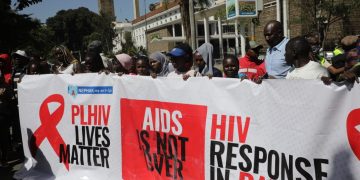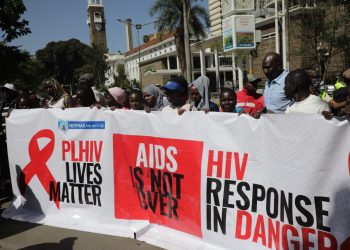By Samwel Doe
Kenya developed -Kenya Covid-19 RMNH Guideline- a practical Guide for Continuity of Reproductive, Maternal, Newborn and Family Planning Care and Services in the backdrop of Covid-19.
The guide outlined among other things elements of antenatal care crucial to minimize maternal and perinatal morbidity and mortality that required modification to ensure safety of patients and healthcare workers within the context of Covid-19.
However the Kenya Covid-19 RMNH guide failed to elaborate how obstetric emergencies would be accorded access to maternal and neonatal health care as countrywide lockdowns restricted movement and limited the availability of public transportation.
According to Dr. Ceciliah Gakiki, Medical referent at Medicines Sans Frontiers (MSF) Mathare Project, the curfew orders missed key priority issues in addressing access to care for persons who required immediate life- saving response – ‘Emergency Care’.
Dr. Ceciliah explains that, between the months of March and April MSF Mathare project responded to overwhelmingly increased number of calls never witnessed before with obstetric patients calls more than doubled up from 98 to 209, as pregnant women struggle to find means of transport after curfew hours.
The increase in numbers, She attributes to lack of alternative transport with taxis or public service vehicles prohibited from operating after curfew, not even the boda boda (motorcycle taxis) that people use in informal settlements.
“The restrictions overlooked people who would experience life-threatening conditions that would require urgent medical care especially pregnant women who would experience obstetric emergencies,” She observed.
To improve access to maternal and newborn health humanitarian organizations in Kenya like MSf-Kenya and private sector health organizations stepped up to bridge the gap.
PharmAccess group has come up with an innovative pregnant women transport inniative known as momcare.
According to Dr. Emma Waiyaya,Medical advisor Momcare, labor comes at any time and with the curfews in place momcare innitiative ensures uninterrupted transport options to birth-related complications, especially emergencies would be seamlessly linked to a facility that has the capacity to manage such complications or emergencies.
The organizations have also teamed up with Emergency Medical Services (EMS) providers and ambulances to provide prehospital emergency care and transporting patients and refer them in a well-coordinated manner through their partnership with the wider health and social care services.
Another emergency rescue initiative known as Wheels for Life was also started to bridge the transportation gaps and help expectant women within Nairobi and its environs get free rides from their homes to the approved health facilities through Bolt taxis.
The initiative is managed by the Kenya Healthcare Federation (KHF), the health sector board of the Kenya Private Sector Alliance (KEPSA).
The Kenya emergency response services are fragmented and work independently. There are several emergency response service providers with different numbers something which confuses the public.
Rescue.co, has also created a platform to enable members of the public access all the best ambulances from a single hotline.
With the curfew in place both emergency prehospital care and hospital transfers in most of the time becomes be very tedious to most patients with some ending up dying because of avoidable delays.
According to Daniel Muhinja, World Vision Kenya nutritionist expert, during the pregnancy period, mothers should be encouraged to attend four Antenatal Care (ANC) visits, at minimum.
He says that the check-ups enable health practitioners to monitor the mother and child and assist in identifying and reducing health risks.
“For instance, HIV tests done during ANC visits give mothers an opportunity to take recommended measures that will prevent the transmission of the disease to the unborn child,” he said adding that “At the time of birth, it is important for mothers to deliver in a health facility. But reaching the hospital is not enough. While there, mothers need to receive quality care.”
With introduction of free maternity service, Kenya has seen an increase of deliveries under skilled care at childbirth improved from 44 percent to 62 percent with more than a million women delivering in health facilities annually, Health CAS Dr. Mercy Mwangagi said during the 2nd annual conference on the partnership for strengthening maternal, neonatal, child health and nutrition health early this year.














